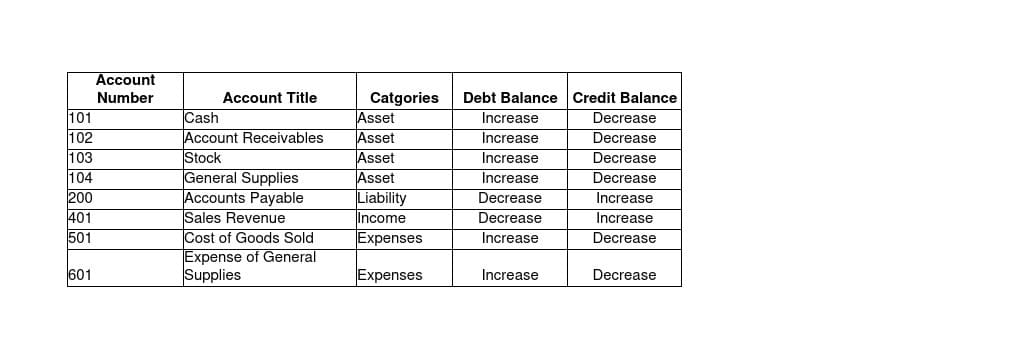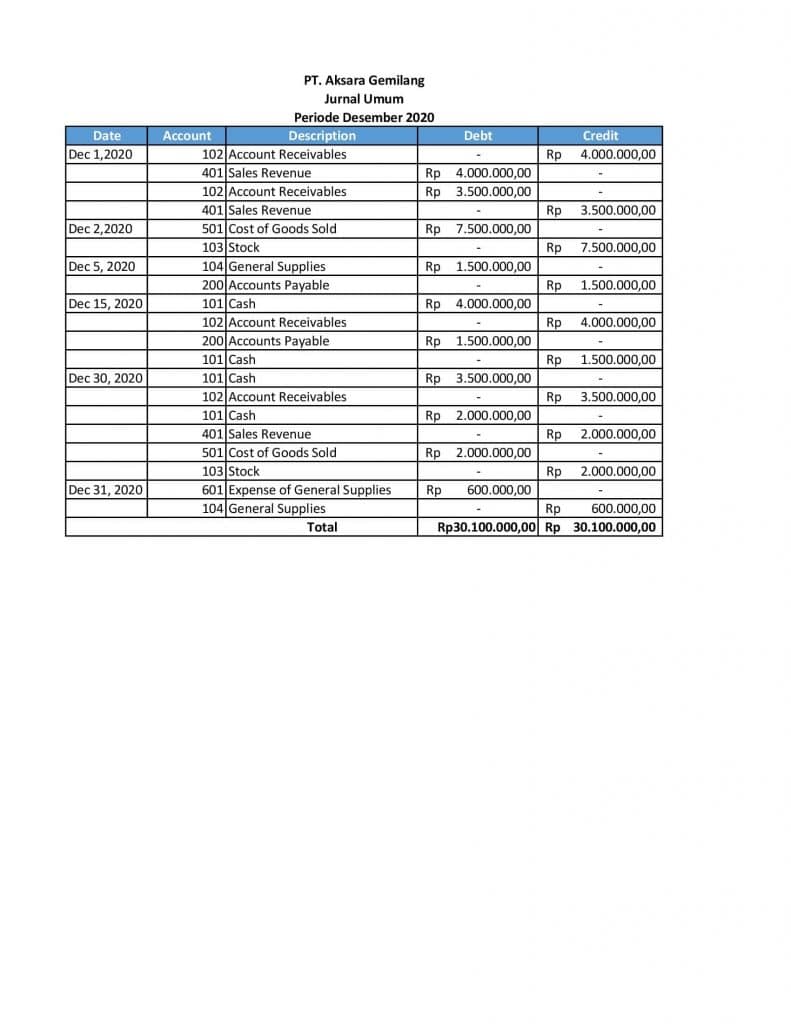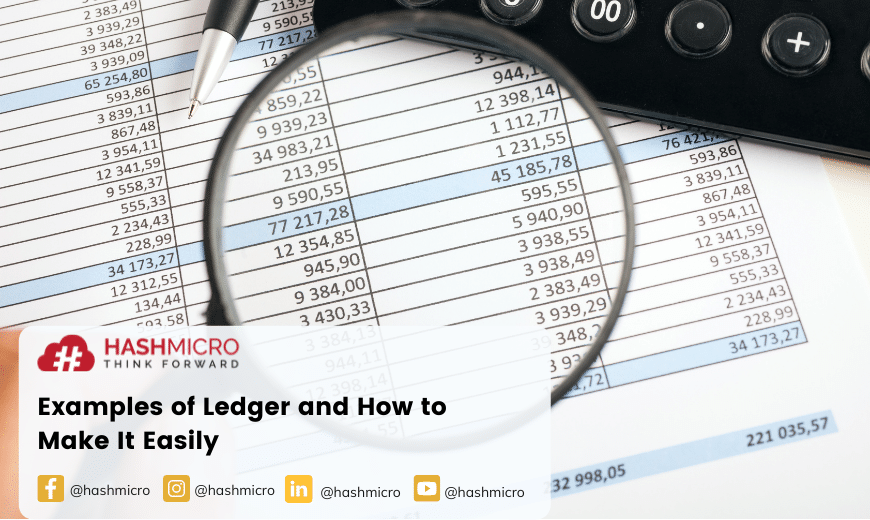There are three stages to the accounting cycle that you should not miss note-taking and classification, illustrating financial statements, and presentation of financial statements. With financial management system, you can make a real-time financial report. The general ledger account is part of that cycle. The ledgers are books that contain historical transaction data sets contained in general journals and specialized journals.
How a large book is produced or posted is simple. However, this will be more difficult and waste time when a business has a large volume of transactions. The compilation of the ledger was done to obtain transaction summaries of the particular period and has been noted in the journal. At the end of the period, the notes served as a source of data for creating company financial statements.
Here we will explain the function, types, and examples of ledgers you need to know to apply to your business.

The Function of Ledger
Ledgers have several functions used during the accounting process, including:
- As a tool to summarize transaction data in public journals has been a record
- Into a device that classifies financial data and knows the number of state of the account in the actual account, whether there is a difference or not.
- As a basis for classifying existing transactions and entries in the journal. To monitor and process transactions easily, you can use the POS system.
- Can be used as material or information in the compilation of financial statements
Types of Ledgers
The following are four categories in a journal that you need to know and which is the company need:
General ledgers
The first type is the general journal. The transaction record is a stand-alone column in a period. In it, you will obtain transaction-related data that include cash, receivables, inventory, debt, and expenses.
Subsidiary ledger
Next, we have the subsidiary ledger which extends the length of the general ledger. In this ledger, you can get a more identical transaction record of a special transaction. Usually, the company will arrange this book into two categories – payable subsidiary ledger or receivable subsidiary ledger
The debt books contain detailed records of the suppliers. So you can get a list of suppliers who give credit loans to the company and its value. While the receivable book records companies that make transactions on credit.
Debtors ledger
Unlike the usual, the debtor ledger contained information only about which customers have debts in their business and how much of it is from one journal, namely the sales journal. So the compilation was to obtain information about company debt.
Creditor ledger
The creditor ledger is almost similar to the debtor’s ledger, but it provides information from just one journal, the journal of purchase. The arrangement of this book is meant to obtain information relating to the company’s debts, which means it contains information on which suppliers are in debt and how much.
Examples of Ledger and How to Make Them
In making examples of ledger format in accounting, and before recording a general journal. Then you should know the normal balance and have a CoA list. In the ledger, each active account is neatly organized in the CoA list. The number of accounts is sequential according to the type of account itself.
For example, since cash accounts, debts, and inventories are part of current assets, each account generally has an initial number of “1”. Then for accounts such as the buildings, vehicles, and the accumulated depreciation that is part of fixed assets are generally given the initial number “2”, and so on. Here’s a Chart of Account examples:

Each account has a balance value that can go up or down when the transaction occurs. For more details, there is an account summary in the journal that shows all transaction activity for a period that affects the balance value of each account.
T-account book in an accounting ledger
The T-account serves to help the reader of the accounting journal in view of the transaction summaries and the final balance score at a period in one account. Here’s a simple example of a T-Account for Cash accounts:

As previously noted, each account has a basic characteristic regarding the double-entry namely debit and credit records. Cash accounts are one part of an asset account that has normal properties or balances in the debt position. So cash balance rates increase in debt and decrease in credit.
Post a journal ledger
We take the CoA assumption that we’ve made before for PT. Aksara Gemilang. Then insert the following illustration into the journal entry:
- On December 1, 2020, PT. Aksara sold its products to two customers on credit.
- The first customer buys PT Aksara products with an item value of Rp4,000,000.00
- While the second customer bought PT Aksara products with an item value of Rp3,500,000.00
- PT Aksara then delivered goods ordered by both customers on December 2, 2020.
- On December 5, 2020, PT Aksara purchased office tools on credit with a transaction value of Rp1,500,000.00
- Then on December 15, 2020, PT Aksara received repayment on the sale of credit by the first customer on December 1, 2020, earlier.
- On December 30, 2020, the second customer paid off his purchase to PT Aksara for the transaction that occurred on December 1, 2020.
- Then there is a third customer who orders PT Aksara products and pays in cash with a transaction value of Rp2,000,000.00
- Last, on December 31, 2020, office tools were used up with a value of Rp600,000.00

Actually, the form of a general journal does not show directly and comprehensively how much profit or loss occurs to the company. The picture becomes clearer when a journal entry is included in the ledger. The ledger account already summarizes the transaction from the journal and shows the balance of debit and credit from each account as in the above example. Loss or gain can be seen when an accounting period is over and the balancing of the ledger account in the income statement.
Conclusion
Well, that’s a quick review of what a ledger account is, the type, and the function and example you can apply to business. The second step of the ledger format in accounting is simple. This means the law is mandatory and cannot be ignored by every company in managing finances to make fewer mistakes and avoid the risk of business failure.
If you run a business with various types of transactions and manually write a ledger account, you will have difficulty. Moreover, the writing of the ledger must be detailed and clear to facilitate reporting financial transactions in a company. Currently, there are many accounting software that provide ledger account creation features up to the stage of financial statements automatically and in real-time.
HashMicro provides Accounting Software with the most comprehensive features that can help create your business ledger. With the software coming from HashMicro, not only can maintain finance but others like stock management and more.

Related Articles:













